Philipp Frank
@philippfrank.bsky.social
Senior Research Fellow at UCL Division of Psychiatry
Reposted by Philipp Frank
Clustering Patients with Pulmonary Hypertension Using the Plasma Proteome
Plasma proteomics reveals four molecular clusters in pulmonary hypertension with distinct survival and therapeutic targets
@atscommunity.bsky.social #medsky
🔓 Open Access
🔗 tinyurl.com/bpa36xt7
Plasma proteomics reveals four molecular clusters in pulmonary hypertension with distinct survival and therapeutic targets
@atscommunity.bsky.social #medsky
🔓 Open Access
🔗 tinyurl.com/bpa36xt7

August 14, 2025 at 4:29 PM
Clustering Patients with Pulmonary Hypertension Using the Plasma Proteome
Plasma proteomics reveals four molecular clusters in pulmonary hypertension with distinct survival and therapeutic targets
@atscommunity.bsky.social #medsky
🔓 Open Access
🔗 tinyurl.com/bpa36xt7
Plasma proteomics reveals four molecular clusters in pulmonary hypertension with distinct survival and therapeutic targets
@atscommunity.bsky.social #medsky
🔓 Open Access
🔗 tinyurl.com/bpa36xt7
Reposted by Philipp Frank
It was a pleasure to celebrate Whitehall II's 40th anniversary this month at UCL with Professor Sir Michael Marmot who set up the study in 1985. Watch the recording of the event here: www.youtube.com/watch?v=__gL...

May 29, 2025 at 11:06 AM
It was a pleasure to celebrate Whitehall II's 40th anniversary this month at UCL with Professor Sir Michael Marmot who set up the study in 1985. Watch the recording of the event here: www.youtube.com/watch?v=__gL...
Reposted by Philipp Frank
2 new studies on weight loss
1. Sustained reduction during midlife improved survival and reduced chronic diseases jamanetwork.com/journals/jam...
2. A randomized trial found patient-to-patient care was more effective than professional for weight loss and less CV risk jamanetwork.com/journals/jam...
1. Sustained reduction during midlife improved survival and reduced chronic diseases jamanetwork.com/journals/jam...
2. A randomized trial found patient-to-patient care was more effective than professional for weight loss and less CV risk jamanetwork.com/journals/jam...
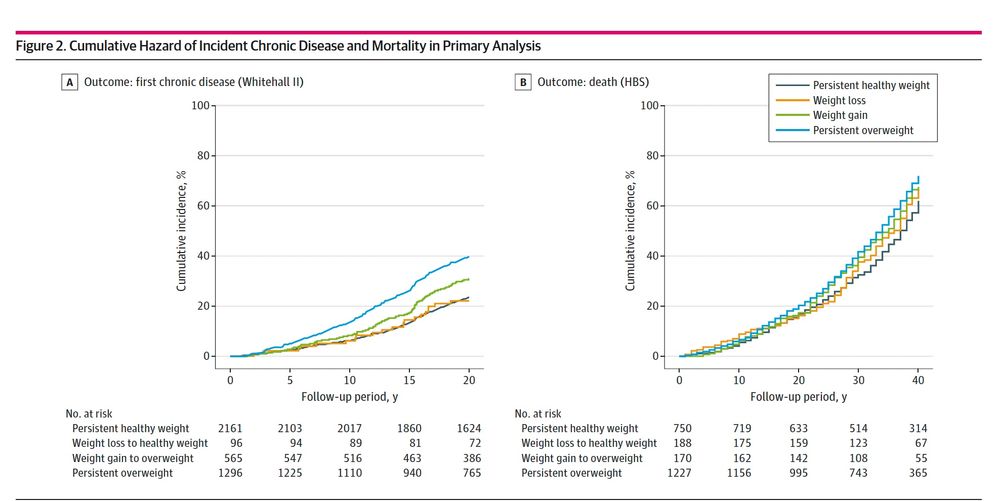
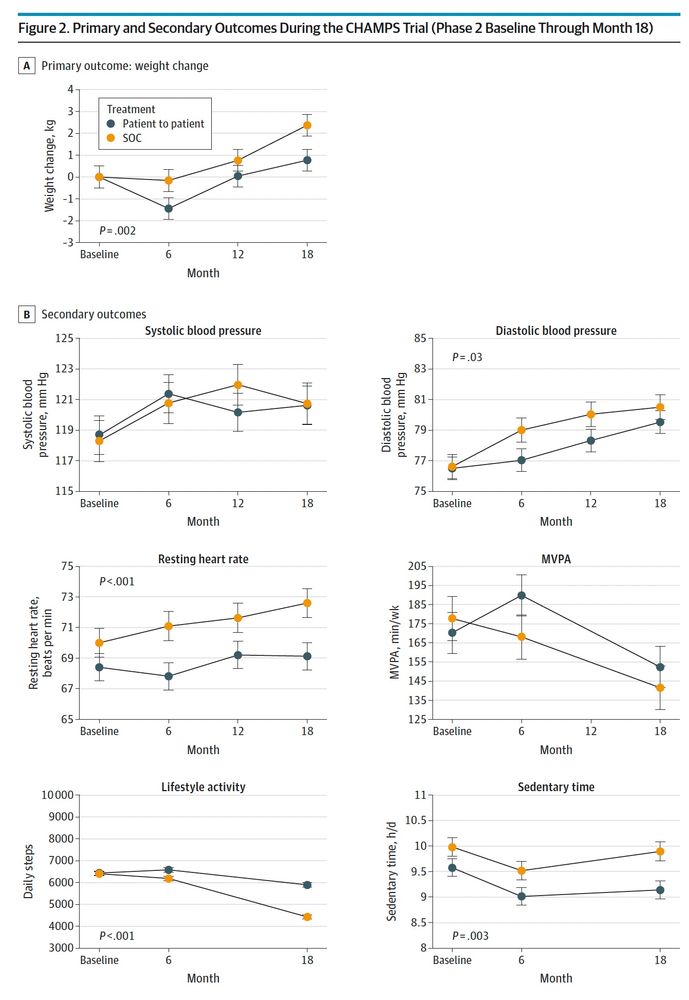
May 27, 2025 at 3:22 PM
2 new studies on weight loss
1. Sustained reduction during midlife improved survival and reduced chronic diseases jamanetwork.com/journals/jam...
2. A randomized trial found patient-to-patient care was more effective than professional for weight loss and less CV risk jamanetwork.com/journals/jam...
1. Sustained reduction during midlife improved survival and reduced chronic diseases jamanetwork.com/journals/jam...
2. A randomized trial found patient-to-patient care was more effective than professional for weight loss and less CV risk jamanetwork.com/journals/jam...
Reposted by Philipp Frank
Long-term follow-up shows that losing weight in midlife—without surgery or medication—can lower the risk of chronic diseases later in life
jamanetwork.com/journals/jam...
jamanetwork.com/journals/jam...
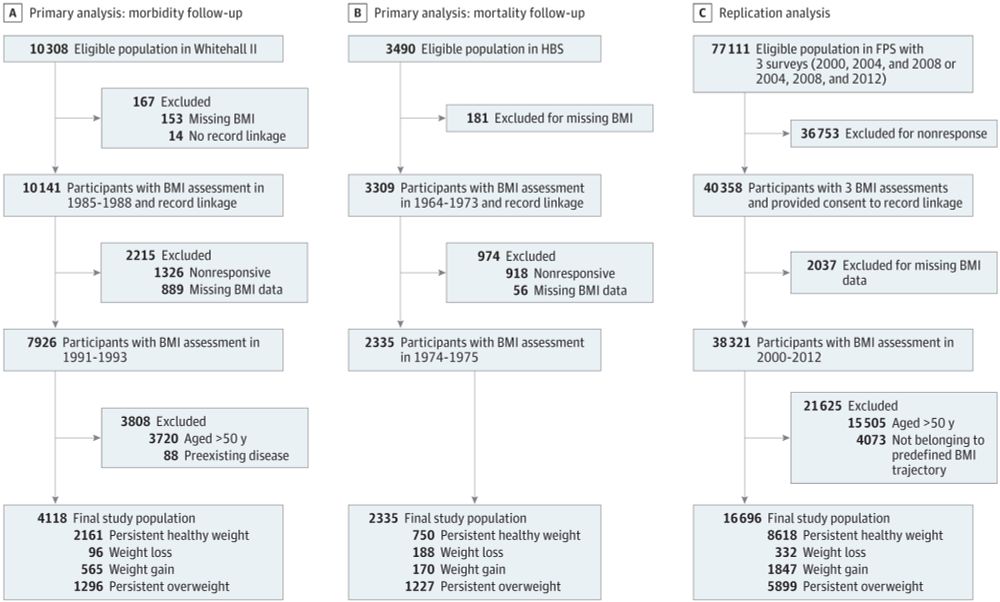
Weight Loss in Midlife, Chronic Disease Incidence, and All-Cause Mortality
This cohort study investigates the association of sustained weight loss in midlife with long-term health benefits.
jamanetwork.com
May 27, 2025 at 7:31 PM
Long-term follow-up shows that losing weight in midlife—without surgery or medication—can lower the risk of chronic diseases later in life
jamanetwork.com/journals/jam...
jamanetwork.com/journals/jam...
Reposted by Philipp Frank
People with social disadvantage, during both early and later life, have an increased risk of 66 age-related diseases mediated by 14 age-related proteins, according to a paper in Nature Medicine. https://go.nature.com/4ifgD6T #Medsky 🧪
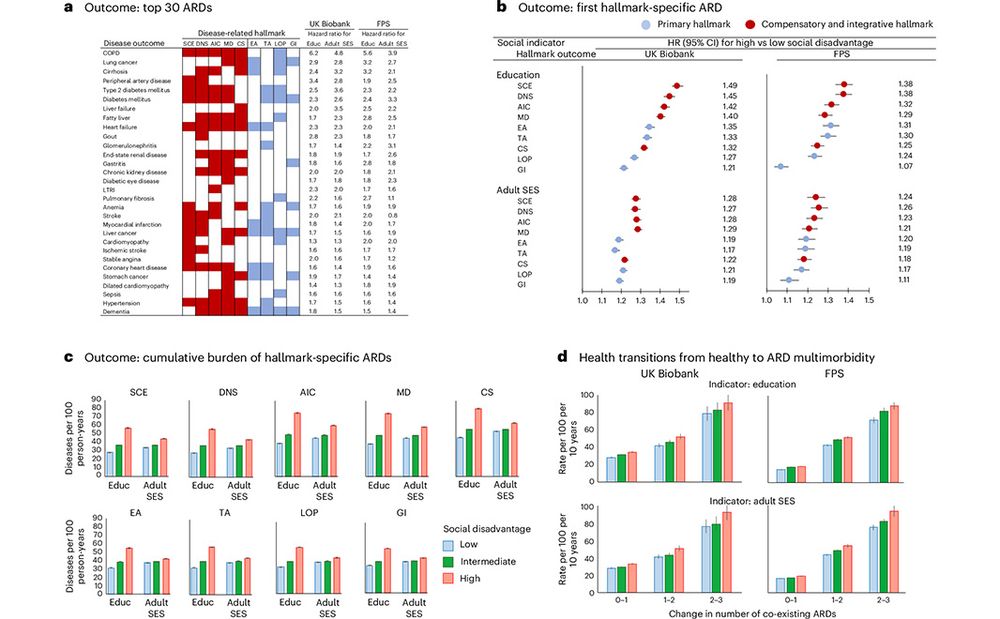
March 19, 2025 at 7:32 PM
People with social disadvantage, during both early and later life, have an increased risk of 66 age-related diseases mediated by 14 age-related proteins, according to a paper in Nature Medicine. https://go.nature.com/4ifgD6T #Medsky 🧪
Reposted by Philipp Frank
People with favourable socioeconomic conditions, e.g. high incomes or education levels, face a reduced risk of age-related diseases and show fewer signs of biological ageing than same-aged peers, finds a study led by Prof Mika Kivimaki @uclbrainscience.bsky.social with @ucllifesciences.bsky.social

Social disadvantage can accelerate ageing and increase disease risk
People with favourable socioeconomic conditions, such as high incomes or education levels, face a reduced risk of age-related diseases and show fewer signs of biological ageing than peers of the same ...
www.ucl.ac.uk
March 14, 2025 at 12:46 PM
People with favourable socioeconomic conditions, e.g. high incomes or education levels, face a reduced risk of age-related diseases and show fewer signs of biological ageing than same-aged peers, finds a study led by Prof Mika Kivimaki @uclbrainscience.bsky.social with @ucllifesciences.bsky.social
Reposted by Philipp Frank
This multicohort study links social disadvantage to accelerated ageing, highlighting NF-κB activation as a key underlying mechanism.
#Aging #SocialDeterminants #NFkB
rdcu.be/edyqo
#Aging #SocialDeterminants #NFkB
rdcu.be/edyqo
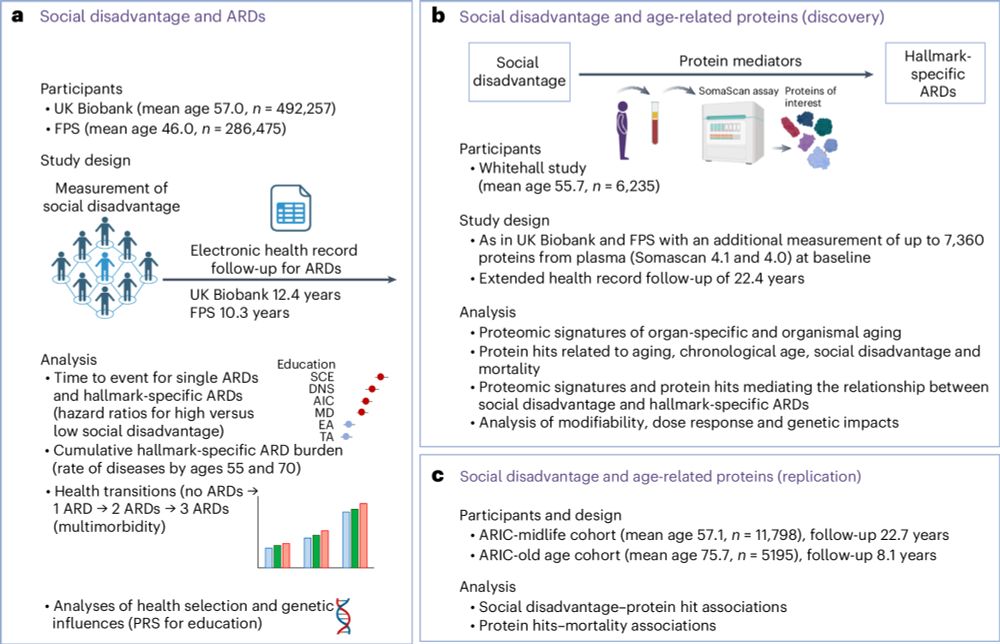
Social disadvantage accelerates aging
Nature Medicine - Individuals with social disadvantage, during both early and later life, have an increased risk of 66 age-related diseases mediated by 14 age-related proteins.
rdcu.be
March 14, 2025 at 1:13 PM
This multicohort study links social disadvantage to accelerated ageing, highlighting NF-κB activation as a key underlying mechanism.
#Aging #SocialDeterminants #NFkB
rdcu.be/edyqo
#Aging #SocialDeterminants #NFkB
rdcu.be/edyqo
#Ageing is not just about time - it is also shaped by social conditions. In our latest study published in @naturemedicine.bsky.social , we show that social disadvantage is linked to biological ageing @mikakivimaki.bsky.social @uclbrainscience.bsky.social @whitehall2study.bsky.social
March 14, 2025 at 11:16 AM
#Ageing is not just about time - it is also shaped by social conditions. In our latest study published in @naturemedicine.bsky.social , we show that social disadvantage is linked to biological ageing @mikakivimaki.bsky.social @uclbrainscience.bsky.social @whitehall2study.bsky.social
Reposted by Philipp Frank
Our latest publication in the Lancet Digital Health shows that organs age at different rates. Proteomic data from 6235 Whitehall II Study participants revealed that accelerated ageing of specific organs are predictive for over 30 age-related diseases. Link to paper: www.thelancet.com/journals/lan...
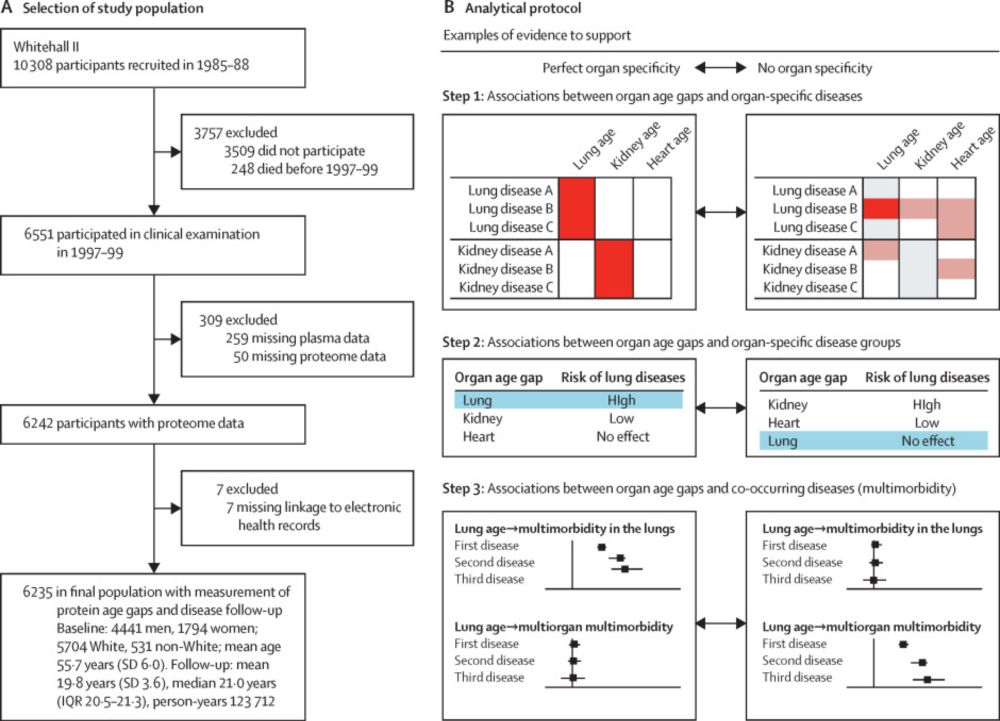
Proteomic organ-specific ageing signatures and 20-year risk of age-related diseases: the Whitehall II observational cohort study
Advanced proteomic organ ageing is associated with the long-term risk of age-related
diseases. In most cases, faster ageing of a specific organ increases susceptibility
to morbidity affecting multiple...
www.thelancet.com
February 27, 2025 at 10:27 AM
Our latest publication in the Lancet Digital Health shows that organs age at different rates. Proteomic data from 6235 Whitehall II Study participants revealed that accelerated ageing of specific organs are predictive for over 30 age-related diseases. Link to paper: www.thelancet.com/journals/lan...
Reposted by Philipp Frank
Our organs age at different rates, and a blood test determining how much they’ve aged could predict the risk of conditions like lung cancer and heart disease decades later, finds a new study led by Prof Mika Kivimaki @uclbrainscience.bsky.social @whitehall2study.bsky.social
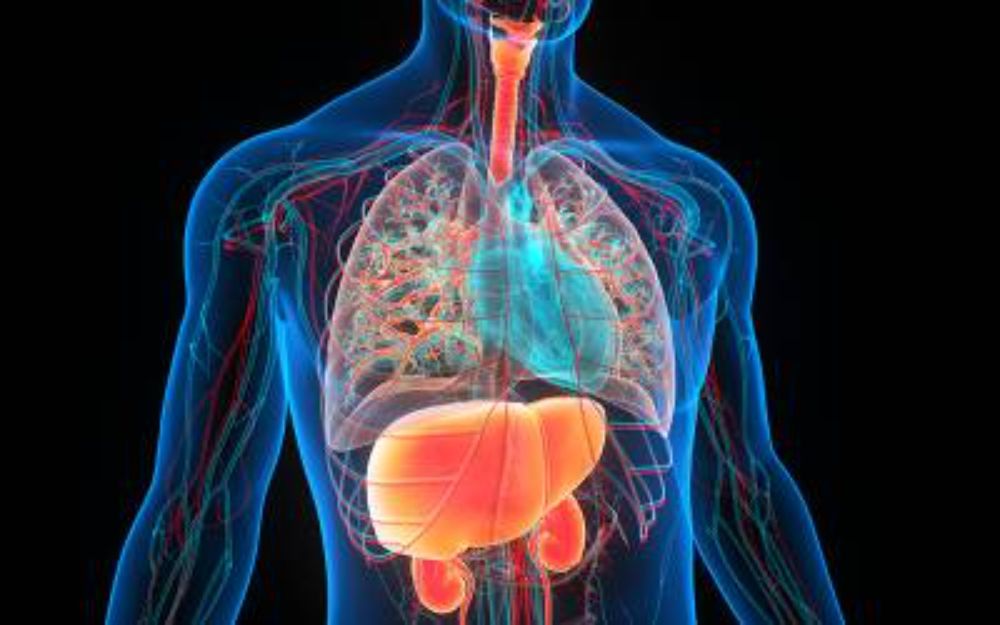
Biological organ ages predict disease risk decades in advance
Our organs age at different rates, and a blood test determining how much they’ve each aged could predict the risk of conditions like lung cancer and heart disease decades later, finds a new study led ...
www.ucl.ac.uk
February 26, 2025 at 4:28 PM
Our organs age at different rates, and a blood test determining how much they’ve aged could predict the risk of conditions like lung cancer and heart disease decades later, finds a new study led by Prof Mika Kivimaki @uclbrainscience.bsky.social @whitehall2study.bsky.social
Reposted by Philipp Frank
Protein organ clocks, as assessed in over 6,000 people (~4,000 plasma proteins, 8 organs) with 20-year follow-up are predictive for over 30 age-related diseases
www.thelancet.com/journals/lan...
www.thelancet.com/journals/lan...
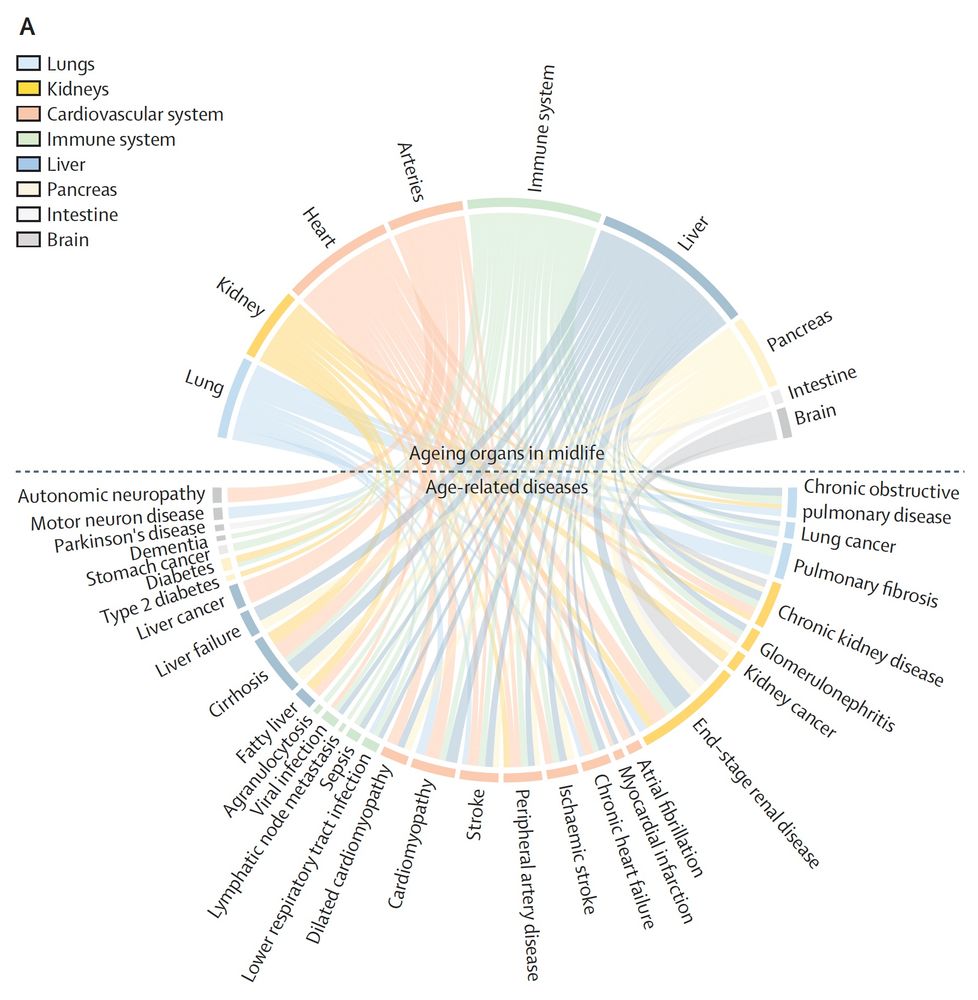
February 26, 2025 at 12:10 AM
Protein organ clocks, as assessed in over 6,000 people (~4,000 plasma proteins, 8 organs) with 20-year follow-up are predictive for over 30 age-related diseases
www.thelancet.com/journals/lan...
www.thelancet.com/journals/lan...
🔬Our latest research published in the Lancet Digital Health shows that different organs age at different rates, and that accelerated biological ageing is linked to a higher risk of age-related diseases—including multimorbidity across multiple organs.
www.thelancet.com/journals/lan...
www.thelancet.com/journals/lan...
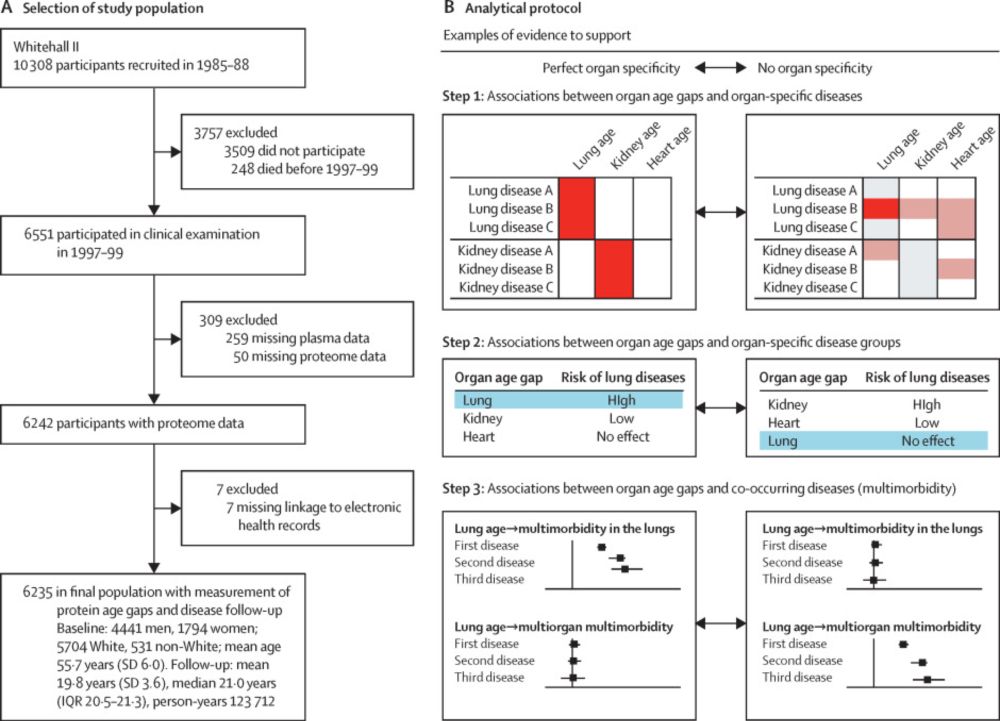
Proteomic organ-specific ageing signatures and 20-year risk of age-related diseases: the Whitehall II observational cohort study
Advanced proteomic organ ageing is associated with the long-term risk of age-related
diseases. In most cases, faster ageing of a specific organ increases susceptibility
to morbidity affecting multiple...
www.thelancet.com
February 26, 2025 at 10:33 AM
🔬Our latest research published in the Lancet Digital Health shows that different organs age at different rates, and that accelerated biological ageing is linked to a higher risk of age-related diseases—including multimorbidity across multiple organs.
www.thelancet.com/journals/lan...
www.thelancet.com/journals/lan...

